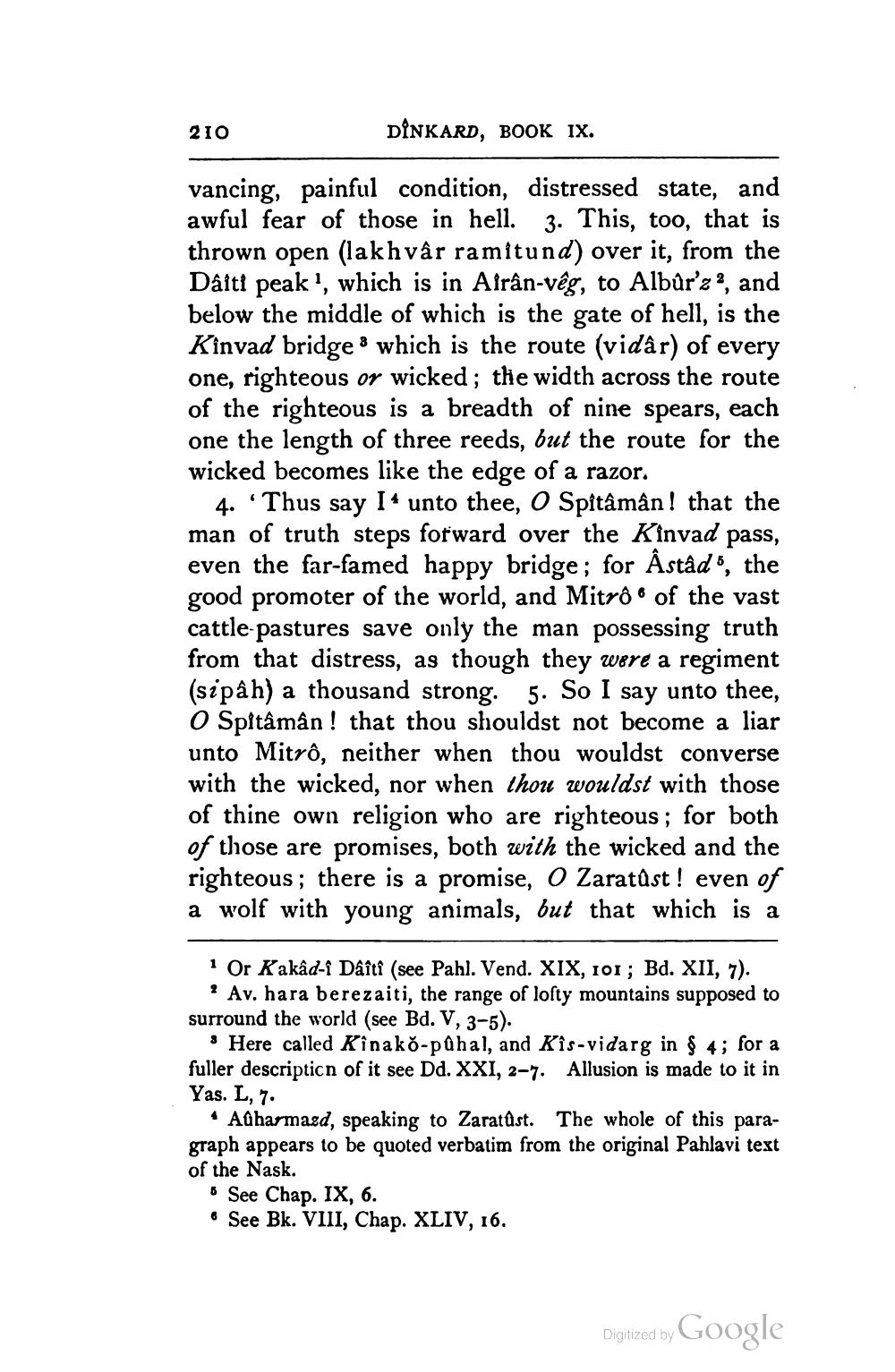________________
DİNKARD, BOOK IX.
vancing, painful condition, distressed state, and awful fear of those in hell. 3. This, too, that is thrown open (lakhvâr ramitund) over it, from the Dâiti peak', which is in Atrân-veg, to Albûr's, and below the middle of which is the gate of hell, is the Kinvad bridge which is the route (vidâr) of every one, righteous or wicked; the width across the route of the righteous is a breadth of nine spears, each one the length of three reeds, but the route for the wicked becomes like the edge of a razor.
8
6
4. Thus say I unto thee, O Spîtâmân! that the man of truth steps forward over the Kinvad pass, even the far-famed happy bridge; for Âstâd3, the good promoter of the world, and Mitrô of the vast cattle-pastures save only the man possessing truth from that distress, as though they were a regiment (sipâh) a thousand strong. 5. So I say unto thee, O Spitâmân! that thou shouldst not become a liar unto Mitrô, neither when thou wouldst converse with the wicked, nor when thou wouldst with those of thine own religion who are righteous; for both of those are promises, both with the wicked and the righteous; there is a promise, O Zaratust! even of a wolf with young animals, but that which is a
210
1 Or Kakâd-î Dâîtî (see Pahl. Vend. XIX, 101; Bd. XII, 7). 2 Av. hara berezaiti, the range of lofty mountains supposed to surround the world (see Bd. V, 3-5).
Here called Kinako-pûhal, and Kis-vidarg in § 4; for a fuller description of it see Dd. XXI, 2-7. Allusion is made to it in Yas. L, 7.
• Aûharmazd, speaking to Zaratust. The whole of this paragraph appears to be quoted verbatim from the original Pahlavi text of the Nask.
See Chap. IX, 6.
See Bk. VIII, Chap. XLIV, 16.
Digitized by
Google




